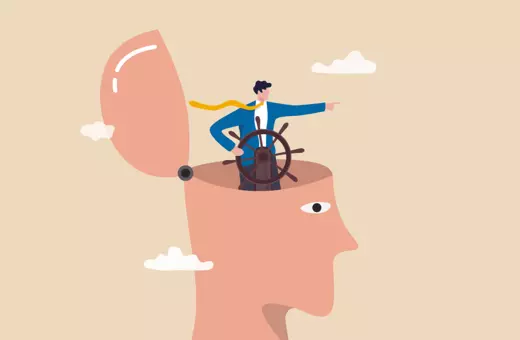The age of 'post-truth' has jumped off the philosophical page and come to life. With almost every news story today, there are competing perspectives, with competing truths. Many have simply given up in their quest for knowledge. In such a world, philosopher Jason Baehr argues, knowledge is a survival skill. One that societies must cultivate to sustain trust and democracy in the digital age. While technology has expanded access to information, it has also eroded our ability to think well. The antidote, he suggests, lies not in more data or smarter algorithms, but in cultivating the intellectual virtues that make genuine understanding possible: persistence, rigor, and humility.
As humans, we care about forming true beliefs and avoiding false beliefs. We want to know, understand, get things right. We want to avoid cognitive error and ignorance. These are our twin epistemic aims.
Our success in achieving these aims depends on many factors. Some are systemic and technological. But others are personal. When gathering information, what questions do we ask? How hard do we work to get to the truth? Do we consider alternative perspectives and explanations? Scrutinize the quality of our sources? Attend to the limits of our evidence? These are things we do as individual thinkers. They express our agency, values, attitudes, and commitments. Whether we do them, and do them well, can significantly contribute to the success or failure of our inquiries.
___
What our sophisticated information technologies give with one hand they take away with the other.
___
One might expect that revolutionary information technologies like the internet or AI would make our lives as epistemic agents much easier. Alas, things are not that simple. While we have unprecedented access to information about innumerable topics, the sheer quantity of information can be overwhelming, which can short-circuit our motivation to inquire. Moreover, the quality of this information is uneven and can be very difficult to evaluate. Making matters worse, the architecture of our information landscape is designed to show us what we want to see and tell us what we already believe. We find ourselves, often without knowing it, in echo chambers and epistemic bubbles. What our sophisticated information technologies give with one hand they take away with the other.
This leaves many of us wrestling with questions like: What sources of information can I trust? Am I capable of distinguishing between credible information and misinformation? Are objectivity and impartiality hopeless ideals? What is the best—or least problematic—way to navigate the minefield that is our epistemic landscape?
SUGGESTED VIEWING After Post-Truth With Rana Mitter, Hilary Lawson, Rebecca Goldstein, Homi Bhabha
One optimistic thought is that we can outsource the relevant epistemic labor by simply “trusting the experts.” While occasionally helpful, this suggestion is not as straightforward as it seems. For one thing, it demands distinguishing between actual and purported experts, which can be just as difficult as gauging the credibility of a particular information source or claim. For another, it is not uncommon even for genuine experts to disagree. Accordingly, to achieve our twin epistemic aims, some demanding intellectual work is required. In what follows, I’ll briefly describe two familiar and tempting ways of dealing with this predicament, each of which leaves something to be desired.
___
But responsible action is informed action.
___
The first is to surrender and withdraw. Overwhelmed by the sheer quantity of information, and uncertain about how to approach it, I might elect simply to give up, stick my head in the sand, and suspend judgment about any number of important topics in politics, science, health, technology, economics, and ethics.






















Join the conversation